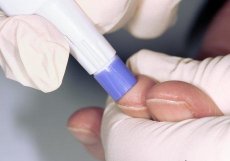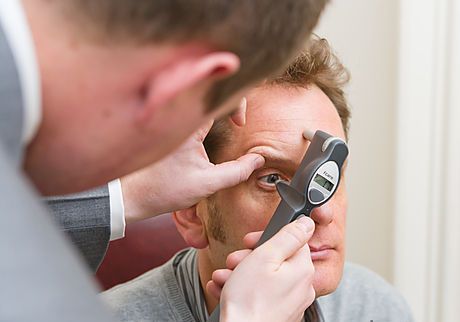New publications
8 ways to stay healthy
Last reviewed: 01.07.2025

All iLive content is medically reviewed or fact checked to ensure as much factual accuracy as possible.
We have strict sourcing guidelines and only link to reputable media sites, academic research institutions and, whenever possible, medically peer reviewed studies. Note that the numbers in parentheses ([1], [2], etc.) are clickable links to these studies.
If you feel that any of our content is inaccurate, out-of-date, or otherwise questionable, please select it and press Ctrl + Enter.

Does staying healthy feel like a second job? Exercising, preparing and eating the right foods, taking vitamins, and maintaining a positive outlook take a lot of effort. If you do all of these things, congratulations. Keep up the good work! Everyone can try other simple and practical ways to improve their health. Here are some ideas.
1. Donate blood
Millions of Ukrainians require blood transfusions every year, and there is always a need for blood. However, it is estimated that only 10% of potential donors actually give their blood. The good news is that donating blood can improve your health. A recent multi-year study of more than a million blood donors in Scandinavia found a link between blood donation and a reduced risk of cancer (liver, lung, colon, stomach, and throat) in men, but the reason for this link is still unclear.

Donating blood can also reduce the risk of heart disease in men, the more you donate, the lower the risk. Also, donating does not harm women in any way. In addition, when you donate blood, you undergo a mini-checkup, as your blood pressure is checked, and your medical history is studied. What could be better than helping to save someone's life, thereby improving your own health?
2. Wash your hands
It sounds simple, but that may be why people don’t take it seriously. Frequent hand washing is one of the best ways to protect yourself from infectious diseases. Because many infections are spread by touching things — door handles, other people’s hands, banisters, phones, tabletops, and other germ-carrying objects — hand washing is important for people of all ages, especially children. A 2005 study found that hand washing cuts the risk of pneumonia and diarrhea in children by half.
Soap and water are all you need, and if these are not available, alcohol-based hand sanitizers can help.
3. Drive less
The benefit of raising gas prices is that there are fewer traffic-related accidents due to fewer drivers. A recent study by Harvard University and the University of Alabama at Birmingham found a reduction in car accidents following higher gas prices, and scientists predict that if the price of gas is at least $4 a gallon, 1,000 lives could be saved.
Driving less will also allow you to spend more time on healthy habits, such as walking. Try to avoid driving one day a week (or at least one day a month). Walk to at least one place you usually drive to.
4. Get enough sleep
A patient once told me, "Doctor, I'll get enough sleep after I die." I reminded him that it could happen sooner than he expected! Constantly lacking sleep may make you more productive, but it won't improve your health. About half of Ukrainian adults suffer from various sleep disorders or are constantly sleep-deprived.
Sleep disorders have been linked to serious health conditions such as high blood pressure and heart attack. Not getting enough sleep can also cause excess weight or even obesity. While it’s best to get the amount you need at night (ideally 7-8 hours), you can also compensate for your sleep debt by taking short naps during the day or sleeping longer on the weekends.
5. Go fishing
Looking for a simple way to reduce your risk of heart attack and stroke? Eat fish. Few foods can provide you with as many health benefits as fish. Eating fish just twice a week can reduce your risk of heart attack or sudden cardiac arrest, and eating fish more than once a month can reduce your risk of stroke.

The American Heart Association recommends eating fatty fish at least twice a week. Small fish like salmon, mackerel, herring, or sardines are best. (Fried fish should be avoided because it contains unhealthy fats.) Light tuna is also recommended because it contains healthy fats and lower levels of mercury than albacore or tuna steaks.
6. Don't rely on antibiotics
If you have a runny nose, sinus infection, earache, bronchitis, or the flu, don’t expect your doctor to immediately prescribe antibiotics. In fact, in some cases, antibiotics can actually make things worse. A study published in the handbook Clinical Infectious Diseases found that 142,000 emergency room visits each year are related to antibiotic-related side effects, ranging from skin rashes to life-threatening allergic reactions.
And for the common flu, colds, and other minor infections like bronchitis, antibiotics don't help much. Overuse and chronic prescription of antibiotics has led to the emergence of drug-resistant bacteria, which has become a serious public health problem, especially in hospitals. Your doctor should decide whether you need antibiotics. It's best to be cautious and not overuse antibiotics.
7. Get vaccinated
Protect yourself with vaccinations. Some diseases, such as tetanus, require booster shots. New vaccines, such as shingles and human papillomavirus, have also become available.
Immunizations, such as the pneumonia shot or the annual flu shot, also help prevent potentially serious infections. Talk to your doctor about which vaccinations you need.
 [ 14 ], [ 15 ], [ 16 ], [ 17 ]
[ 14 ], [ 15 ], [ 16 ], [ 17 ]
8. Get medical checkups
A little prevention is always the best medicine, so don’t skip your annual checkups. Don’t put off screening tests like colonoscopies (starting at age 50 for most of us), Pap smears and mammograms (for women), bone density tests, blood pressure, cholesterol levels, and other blood tests.

Prevention is about being proactive and taking action, so take some time to focus on your health.
 [ 18 ]
[ 18 ]
